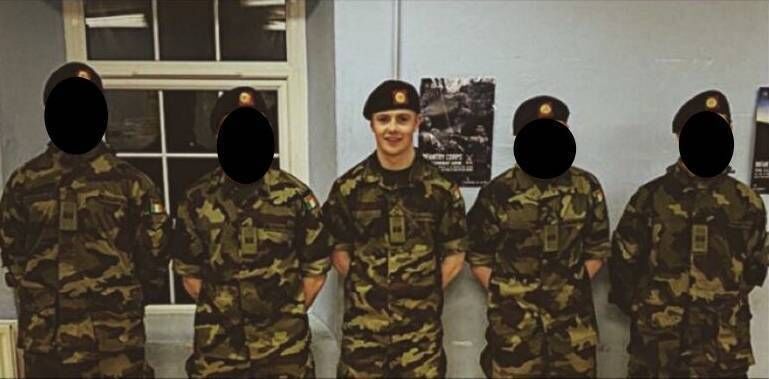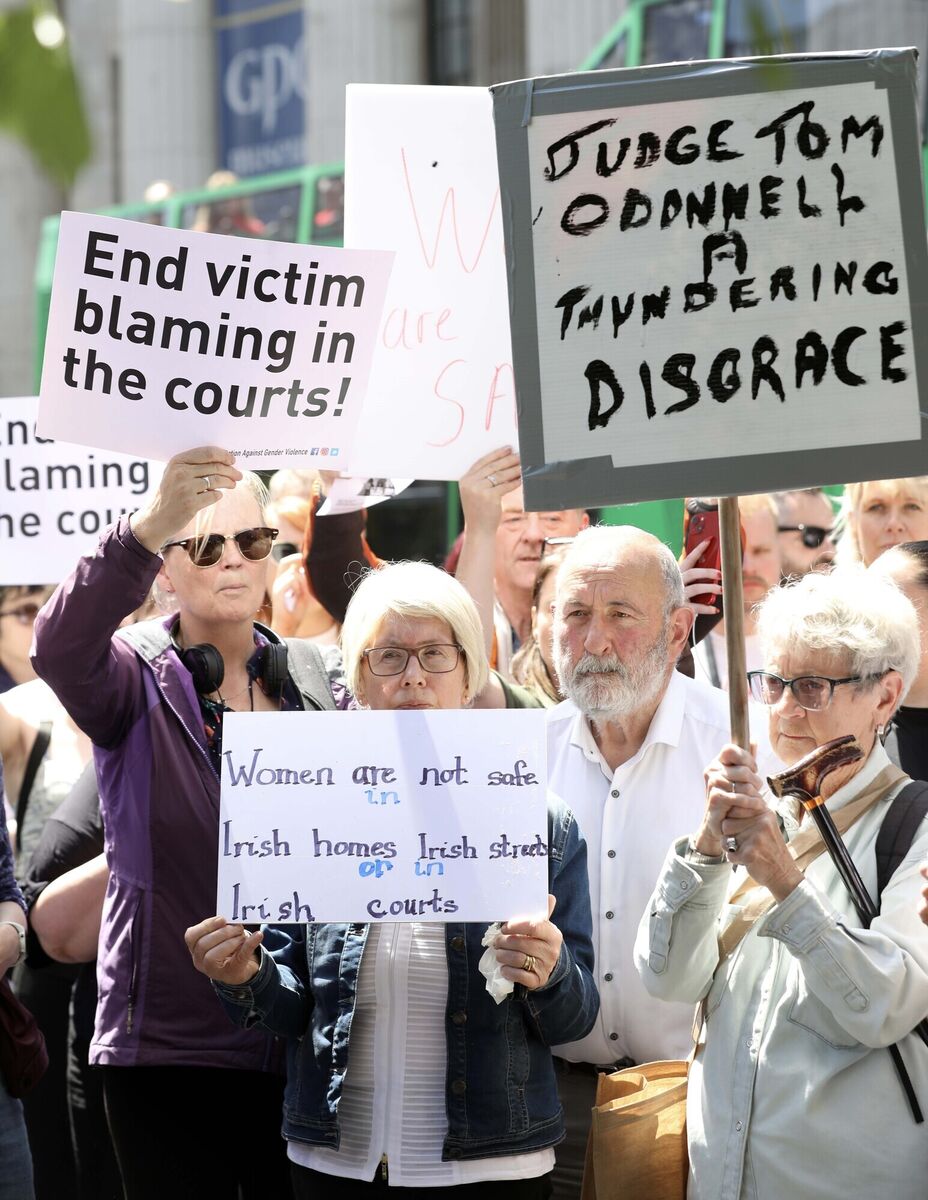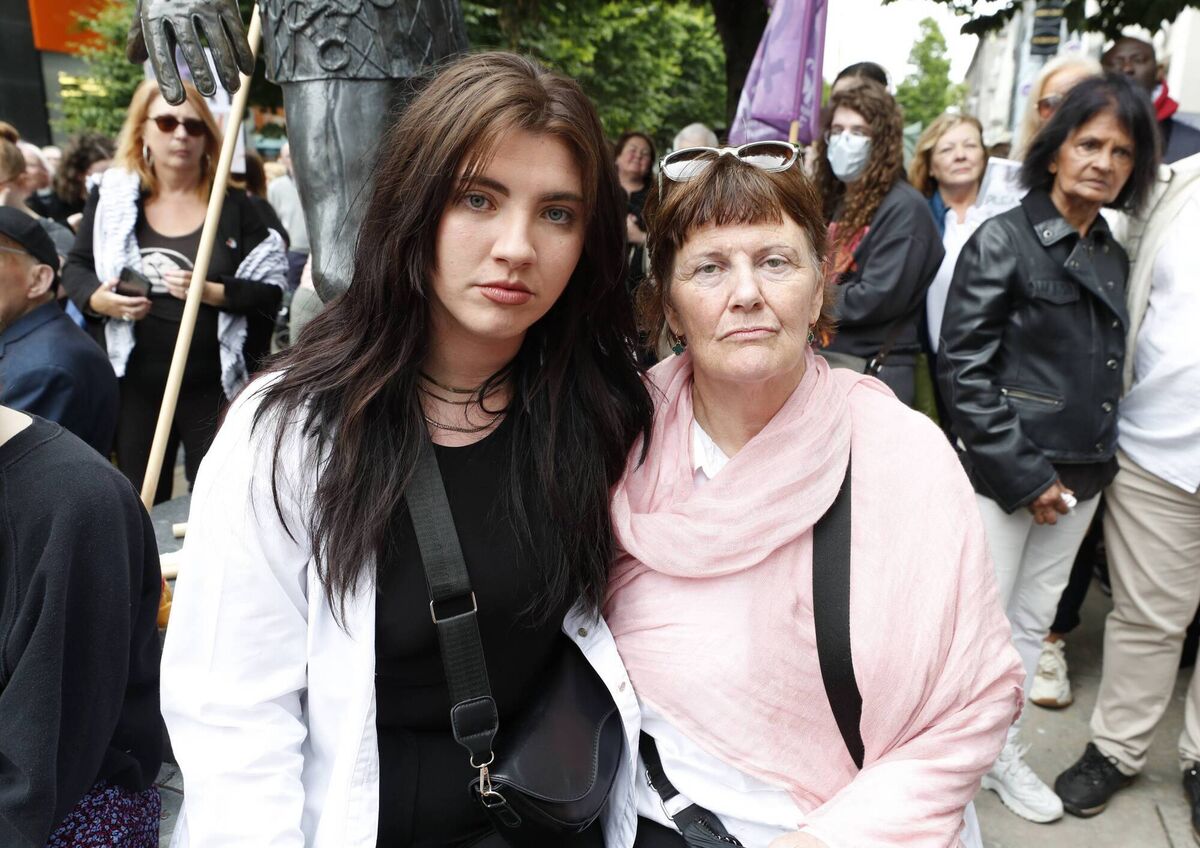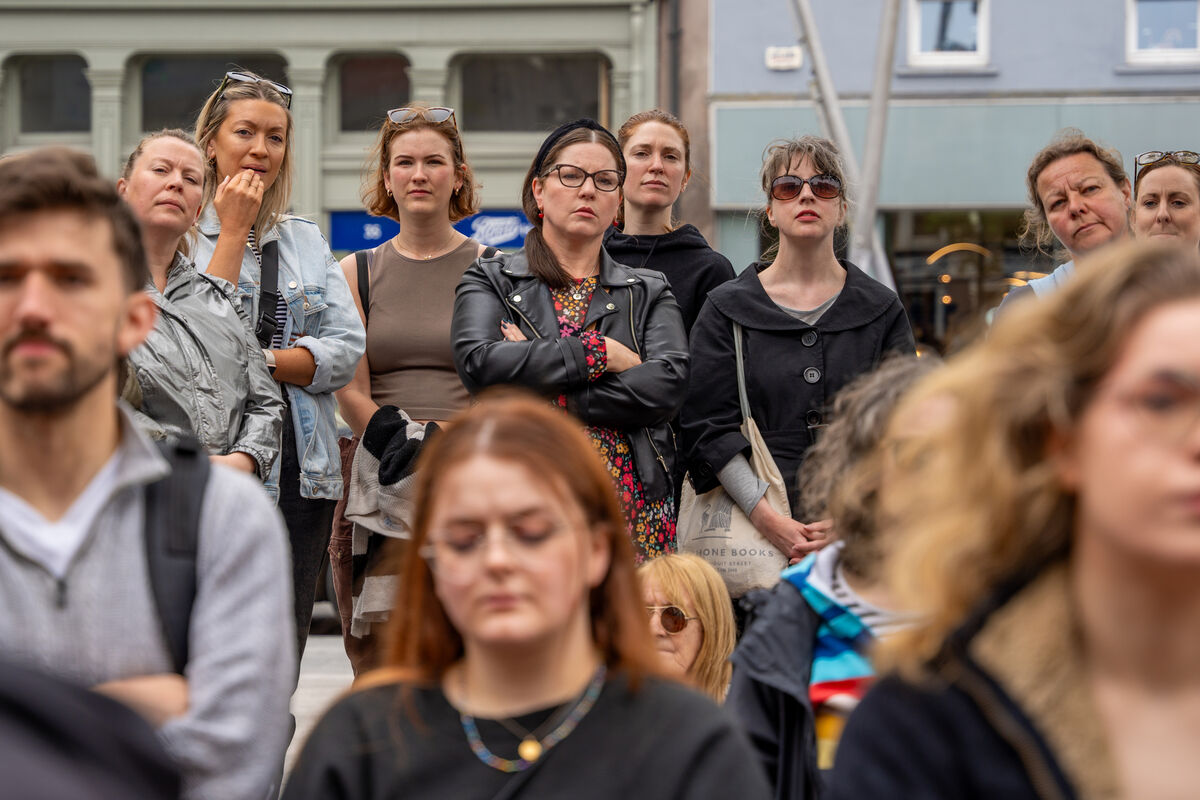Louise O'Neill: The justice system is not built to protect women like Natasha O'Brien

Natasha O’Brien speaking at the Limerick protest last Saturday. She suffered life-changing injuries after an unprovoked attack by soldier Cathal Crotty — who received a suspended sentence.
- This article is part of our Best of 2024 collection. It was originally published in June. Find more stories like this here.
Natasha O’Brien, the young woman assaulted by a member of the Defence Forces in 2022, is a force of nature. Every time I hear or see her speak, I am in awe of her courage, her defiance, her righteous anger.
But why does she need to be so?
Why, in the aftermath of such a traumatising and brutal attack, should O’Brien have to speak at protests held in her name?
Why are Irish women, once again, forced onto the streets, shouting ‘enough is enough’?
Why are we still begging for the right to live in peace and safety?
What do we have to do to prove that our lives matter too?
Go to the guards, they say. Trust the judicial system. But why would we, when the system is so clearly rotten at its core?
A system which was never built by us, or for us, certainly doesn’t seem all that concerned with protecting us either.
Natasha O’Brien stood in that court-room and she spoke not only of the serious physical injuries she sustained at Cathal Crotty’s hands, but the lasting psychological impact too; the PTSD, the isolation, the self destructive behaviours that led to the loss of her job.
And how was she rewarded for her bravery?
She was told by Judge Tom O’Donnell that Crotty, the man who took to Snapchat that same night to boast “two to put her down, two to put her out”, the man who initially denied responsibility for the incident until shown CCTV footage that proved otherwise, “must be given credit” for pleading guilty.
(If you believe that anyone pleads guilty to make it “easier” for the victim rather than because of advice given by their legal team, I have a lovely bridge to sell you.)
O’Brien had what one would assume is an open-and-shut case — camera footage, eyewitnesses, social media evidence, and finally, yes, a guilty plea — and she still had to watch as the judge imposed a three-year suspended sentence, remarking that he had a “huge judgement call to make” because, if he handed down a jail sentence, Crotty’s army “career is over”.

If I state the obvious, that perhaps Cathal Crotty’s career in the army should be affected by this — I’m not sure that a man shouting homophobic slurs on the street before beating an innocent woman senseless is exactly the representation the Defence Forces needs — I will be accused of misandry.
“What do you want?” they ask. “Blood? Why should a young man’s life be ruined over one mistake?”
Actually, I don’t think that’s what any victim wants.
What we want is accountability.
What we want is appropriate consequences, not for the perpetrator to be given a cookie for reluctantly admitting guilt when faced with no other option.
Here’s the issue — when male violence against women is so widespread but nothing is done to cut it off at its roots, that violence becomes normalised, even trivialised.
It is made smaller, somehow, by its prevalence.
It’s not that big of a deal, is it?

It’s certainly not something that should ruin a man’s life, or his career. It happens all the time, after all.
But what about women?
We are supposed to sacrifice ourselves on the altar of a man’s promising future, and be grateful for the privilege.
We patch up our wounds and we hide our scars. We carry our trauma on our backs, and we are bent low with it.
Our lives are changed forever, misshaped and mangled in ways that are both visible and invisible.
The therapy bills and the loss of jobs and the friends who disappear because we’re different now, we are tired or angry or sad, our pain is too difficult to witness.
Our lives are changed, forever, irrevocably, until we are forced to create new ones out of the pieces left behind, and the men responsible are told by our judicial system that it is their God-given right to move on, untouched by any of it.
To forget what they did to us, how they carved their names into our hearts without permission.
How do they sleep at night? I wonder sometimes.
Peacefully, I suspect, and perhaps that is the hardest part of all.

Women are not punching bags. We are not receptacles for your aggression and violence. We are not the battleground for your wars to be fought upon.
We are not the supporting character in your narrative, we are not the training ground where you can make your mistakes, we are not the soft place for you to land.
We are not your probation officers, or your therapists, or your social workers; it’s not our job to rehabilitate you or to teach you how to be a good man.
We are human too and we deserve to be treated as such.

Right now, the women of Ireland are tired but we are angry too. But if I’ve learned anything over recent years — after Niamh Ní Dhomhnaill and Ashling Murphy — is that it will fade.
This anger is almost impossible to sustain, and in time, we will forget the white heat of it. We always forget until it’s the next woman.
And the next woman. And the next.
And we’ll keep shouting and we’ll keep marching and the politicians will keep saying how terrible it is and there will be more empty promises about how change needs to happen, and my editor will contact me and she’ll say, do you want to write about this?
Yes, I’ll reply, even though I hate my words now, even though they feel worthless and cheap and I have learned to doubt they will make any difference at all.
But no, they keep telling us, this time will be different, this time it will mean something.
Because enough is enough is enough is enough. Enough. When will it finally be enough?





